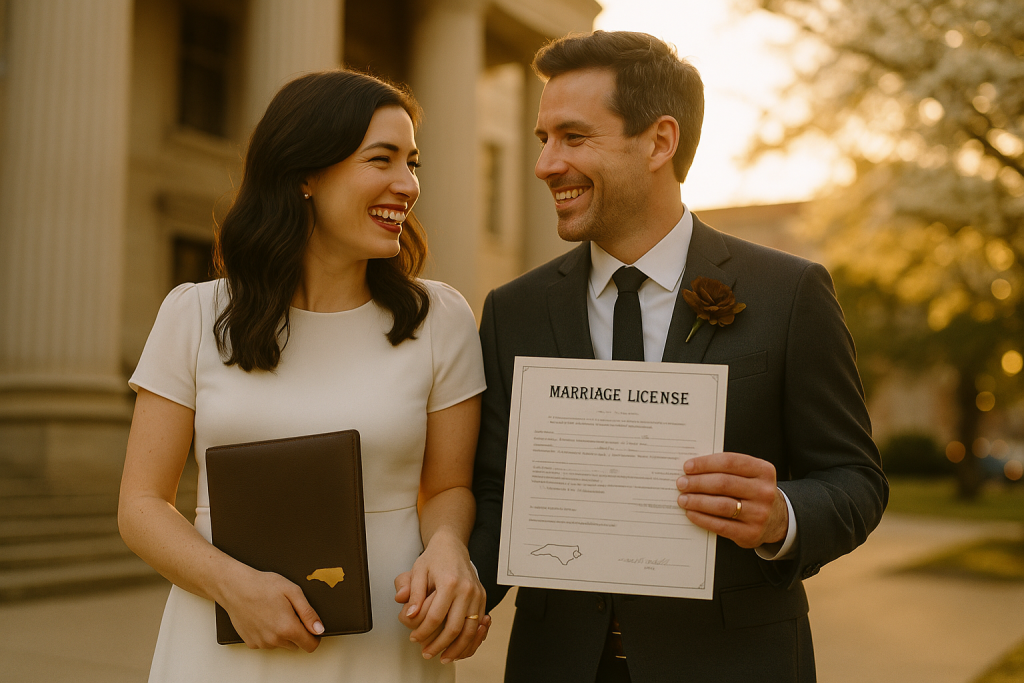Absolutely! Getting married online in the U.S. is not only possible but also increasingly popular. With advancements in technology and changes in state laws, couples can now tie the knot virtually, making the process more accessible and convenient than ever.
Understanding Online Marriage
An online marriage, often referred to as a virtual marriage or Zoom wedding, allows couples to legally wed via video conferencing platforms. This means you and your partner can exchange vows and obtain a valid marriage certificate without being physically present in the same location.
States That Allow Online Marriages
While the legality of online marriages varies by state, some have embraced this modern approach. Notably, Utah has been at the forefront, permitting couples from anywhere to obtain a marriage license and have their ceremony conducted online by a licensed officiant. This means you can get married online legally, regardless of your physical location. For a comprehensive overview, refer to our State-by-State Guide: Virtual Marriage Legal Status in the U.S.
How to Get Married Online
The process of getting married online typically involves the following steps:
- Obtain a Marriage License: Apply for a marriage license through a state that permits online marriages, such as Utah.
- Schedule the Ceremony: Coordinate with a licensed online minister to set a date and time for your virtual wedding.
- Conduct the Ceremony: Exchange vows over a video conferencing platform, ensuring all legal requirements are met.
- Receive the Marriage Certificate: After the ceremony, the officiant will file the necessary paperwork, and you’ll receive your official marriage certificate.
For detailed instructions, visit our How It Works page.
Benefits of Online Marriages
Opting for an online marriage offers several advantages:
- Convenience: No need to travel or coordinate physical venues.
- Inclusivity: Friends and family from around the world can attend virtually.
- Speed: The process can be quicker than traditional weddings.
- Cost-Effective: Reduces expenses related to venues, travel, and accommodations.
Ensuring Your Online Marriage is Legally Binding
To ensure your virtual wedding is legally recognized:
- Verify that the state issuing the marriage license permits online ceremonies.
- Use a licensed officiant authorized to conduct virtual weddings.
- Ensure all participants have valid identification.
- Comply with any state-specific requirements, such as witness presence.
For more information, check out our guide on Ensuring Your Virtual Wedding is Legally Binding.
FAQs About Getting Married Online
Is an online marriage legal everywhere in the U.S.?
While some states fully recognize virtual marriages, others may not. It’s essential to check the specific laws of your state or consult with a legal expert.
Can international couples get married online in the U.S.?
Yes, international couples can legally marry online through states like Utah, which allow non-residents to obtain a marriage license and conduct the ceremony virtually.
How long does the online marriage process take?
The timeline can vary, but with efficient coordination, couples can complete the process in as little as 24 hours.
Do we need witnesses for an online wedding?
Requirements vary by state. Some states may require witnesses, while others do not. It’s crucial to verify the specific requirements of the state issuing the marriage license.
Will our online marriage certificate be recognized internationally?
Many countries recognize U.S. marriage certificates. However, it’s advisable to check with the specific country’s regulations and consider obtaining an apostille if necessary.
Embarking on the journey of marriage is a significant step, and doing so online offers flexibility and convenience. If you’re ready to say “I do” virtually, contact us today to get started!




